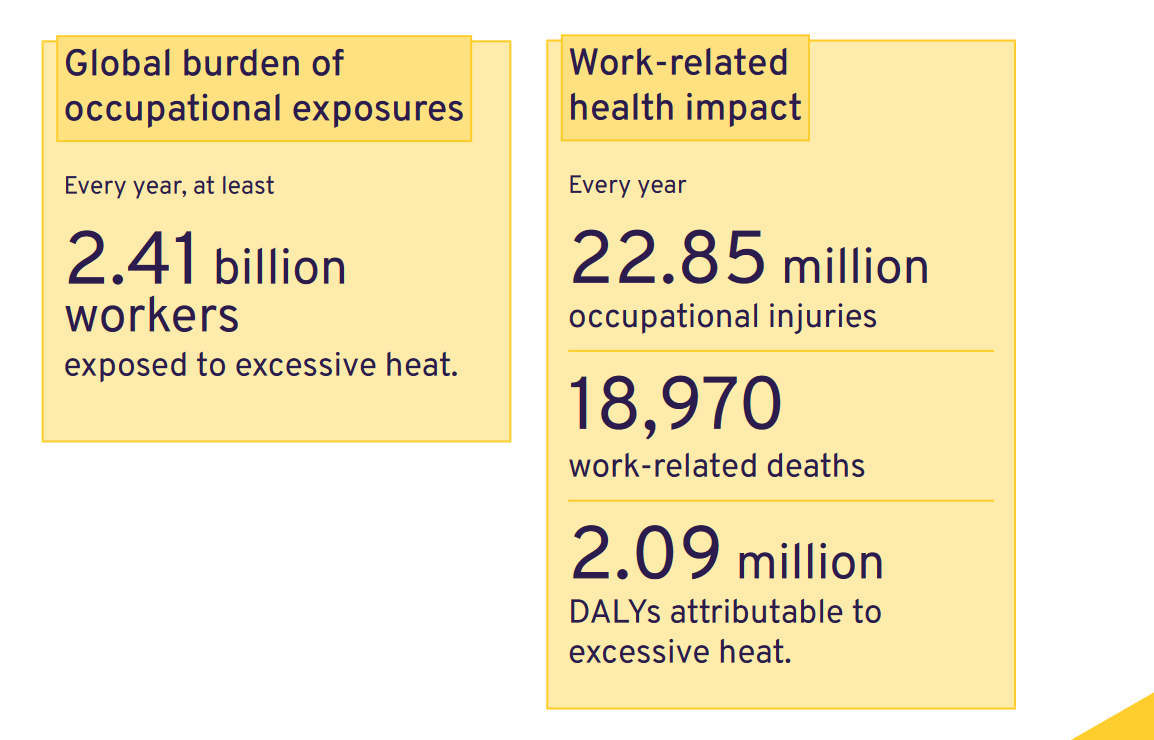OSH protections 'struggling to keep up with the evolving risks'

A majority of the world's workforce are exposed to health hazards exacerbated by climate change, according to a new report released by the International Labour Organisation (ILO).
The ILO estimates that more than 2.4 billion workers, or more than 70% of the total 3.4 billion global workforce, are likely exposed to excessive heat at some point during their work.
"Workers across different sectors are exposed to these hazards but some workers, such as agricultural workers and other outdoor workers carrying out heavy labour in hot climates, may be particularly at risk," the report read.
In fact, the report found excessive heat is already responsible for estimated 22.85 million occupational injuries, 18,970 deaths and 2.09 million disability-adjusted life years.
Other emerging climate hazards
But beyond the excessive heat, the report also found various health hazards due to climate change that are impacting the workforce. They include:
UV radiation: It exposed 1.6 billion workers, with more 18,690 work-related deaths annually from nonmelanoma skin cancer.
Workplace air pollution: It exposed an estimated 1.6 billion workers, resulting up to 860,000 work-related deaths among outdoor employees annually.
Agrochemicals: It exposed over 870 million employees in agriculture, resulting to over 360,000 deaths annually that can be attributed to pesticide poisoning.
Vector-borne diseases: Exposure from parasitic and vector-borne diseases have led to 15,000 work-related deaths annually.
Struggling global OSH protections
Manal Azzi, Occupational Safety and Health (OSH) Team Lead at the ILO, said the findings indicate that climate change is already creating significant additional health hazards for employees.
However, the report found that global OSH protections have "struggled to keep up with the evolving risks."
The ILO said collaborative efforts are necessary to develop and implement effective mitigation and adaptation measures to protect employees around the world.
"Occupational safety and health considerations must be become part of our climate change responses – both policies and actions," Azzi said in a statement.
"Working in safe and healthy environments is recognised as one of the ILO's fundamental principles and rights at work. We must deliver on that commitment in relation to climate change, just as in every other aspect of work."
The report comes after warnings from United Nations Secretary-General António Guterres last year that the world is entering an era of "global boiling."
Guterres called on leaders, and G20 nations responsible for 80% of global emissions, must step up for climate action and climate justice.
"This must not inspire despair, but action. We can still stop the worst," he said. "But to do so we must turn a year of burning heat into a year of burning ambition."








